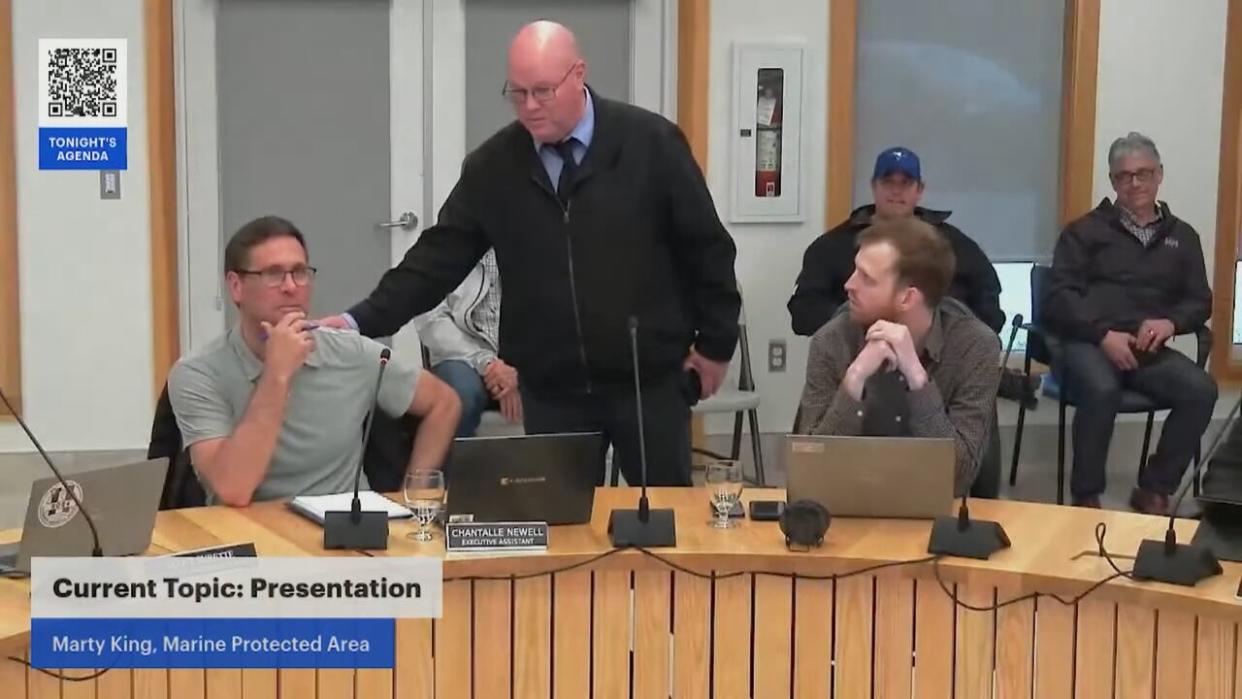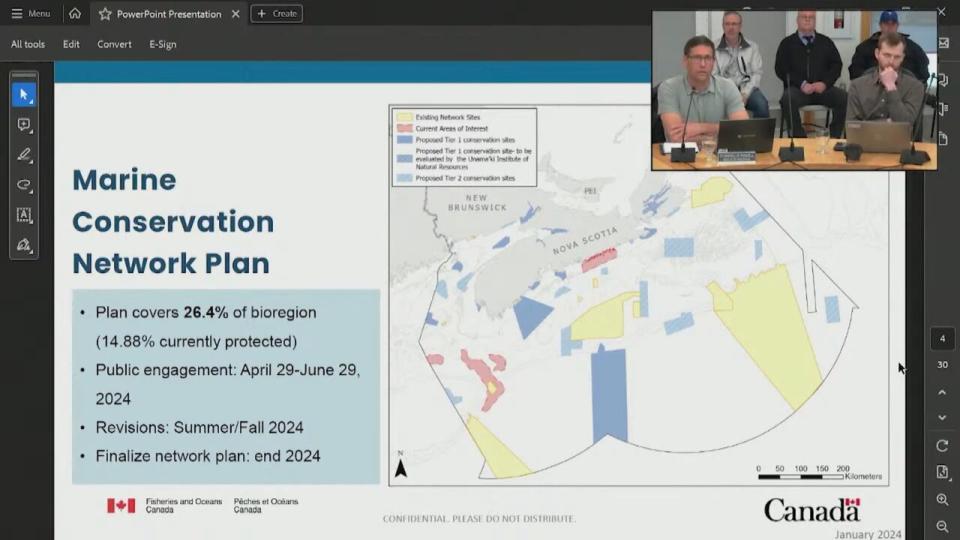DFO seeks to reassure fishermen after 'scary' map released of potential protected areas

A member of the Fisheries Department's marine planning group was publicly challenged in Nova Scotia this week to guarantee marine protected areas will not harm the region's inshore lobster fishery.
Marty King appeared Thursday before Argyle municipal council in southwestern Nova Scotia where several areas are under consideration for protection.
His appearance followed the release of DFO's marine conservation network plan — a map with dozens of potential protected sites on the Atlantic coast of Nova Scotia and the Bay of Fundy.
King repeatedly stressed coastal conservation areas would have no effect on the lobster fishery.
"Hopefully we're getting the message out more and more that an MPA [marine protected area] doesn't mean no fishing," he said.
"There are MPAs in the world, and even some portions of MPAs in our region, where there's no fishing allowed. But coastal areas, we are saying — blanket statement — no restrictions on lobster or those other lower-impact fisheries."
That was not quite enough for Dan Fleck of the Brazil Rock Lobster Association, which represents inshore fishermen in southwestern Nova Scotia.
Fleck went to a microphone and politely confronted King near the end of his appearance, saying while DFO had made plenty of commitments, it offered few specifics.
Want it 'written in stone'
"We want to know when it's going to be written in stone that those areas will be protected for lobster fishing," said Fleck.
King responded with more reassurances.
"We're trying to get ahead of that and be more proactive and be able to give that clear answer to that question," he said. "And I haven't really answered it. I would say 99.99999 per cent sure that there would be no impacts on lobster."
The network plan is a guide only and any formal designation is still years away, but the release of the map starts the clock.
The public engagement period started April 29 and closes at the end of June, with a finalized map expected by the end of 2024.

DFO's marine conservation network plan has dozens of potential sites on the Atlantic coast of Nova Scotia and the Bay of Fundy. (Municipality of the District of Argyle)
Once a candidate area is picked by DFO, or any other federal department, far more extensive consultations will begin. Designation generally takes about six years.
MPAs are closed to industrial activities like oil and gas exploration and development. For the fishing industry, mobile, bottom-contact, trawl or dredge gear is prohibited. That could mean scallop or ground fishing.
DFO is trying to avoid the kind of backlash that enveloped its proposed marine protected area called Eastern Shore Islands years ago.
Many fishermen in the area refused to believe DFO's assurances that the local lobster fishery would be allowed to continue if the large coastal area in eastern Nova Scotia was made an MPA.
An organized "No MPA '' campaign quickly sprung up, and Jonathan Wilkinson — then fisheries minister — suspended the process ahead of a federal election.
The area is back under consideration as an MPA.
Chebogue a lower priority, says DFO
In Argyle on Thursday, King acknowledged the fears of fishermen, saying the maps can be "scary."
When asked about Chebogue, a potential coastal conservation area located in the aptly named Lobster Bay, King said it was a lower priority for DFO. The area encompasses the Tusket Islands.
"We wouldn't anticipate there being any restrictions on accessing those islands," King said.
"There really wouldn't be any fishing impacts on that area."
MORE TOP STORIES

